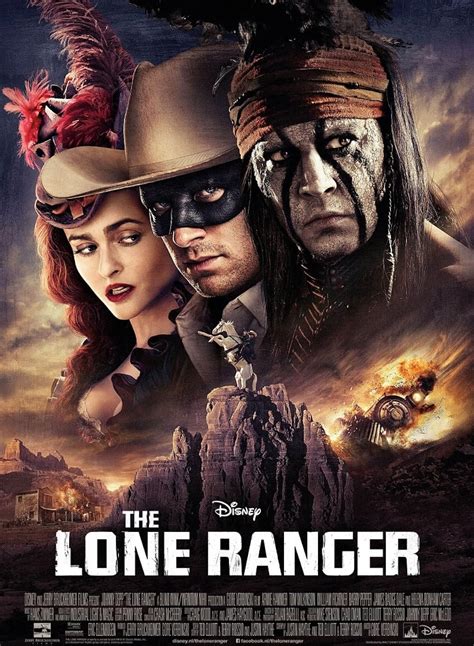The Lone Ranger

Description:
The Lone Ranger is a thrilling action-adventure film that follows the story of a masked hero and his Native American companion as they fight against corruption and injustice in the Wild West. With plenty of action-packed scenes and a touch of humor, this film is sure to keep you on the edge of your seat.Keywords:
Adventure, Justice, Humor, Redemption, FriendshipWho played the Lone Ranger in the 1950s?
In the 1950s television series "The Lone Ranger," the character was portrayed by actor Clayton Moore. The show premiered in 1949 and ran until 1957, making Moore synonymous with the role. He became an iconic figure, known for his distinctive mask and cowboy attire, as he fought for justice in the American West alongside his faithful companion, Tonto, played by Jay Silverheels. Moore's portrayal left a lasting legacy, and he is often remembered as the definitive Lone Ranger.
Why did the original Lone Ranger quit?
In the 2013 film "The Lone Ranger," the character John Reid, who becomes the Lone Ranger, initially quits because he feels disillusioned with the justice system and the law. After witnessing the brutal murder of his fellow Texas Rangers and the betrayal by those he trusted, he loses faith in the effectiveness of the legal system. This leads him to adopt the persona of the Lone Ranger, fighting for justice outside the bounds of conventional law. His transformation is driven by a desire to seek vengeance and protect the innocent.
What is the true story of the Lone Ranger?
The Lone Ranger is a fictional character created for radio in 1933 by George W. Trendle and Fran Striker. The character is a masked Texas Ranger who fights injustice in the Old West, often accompanied by his Native American friend, Tonto. The story is loosely inspired by the real-life Texas Rangers and various lawmen of the era. The character became popular through radio, television, and movies, symbolizing the fight for justice and the American frontier spirit. The original tales blend elements of adventure, morality, and heroism.
Why did Disney remove the Lone Ranger?
Disney removed the "Lone Ranger" from its lineup primarily due to the film's poor box office performance in 2013, despite a significant budget of around $250 million. The film, starring Armie Hammer and Johnny Depp, faced criticism for its portrayal of Native American culture and was seen as a financial disappointment, grossing only about $260 million worldwide. Following this, Disney chose to distance itself from the franchise and focus on more successful properties.
Explore More Categories: